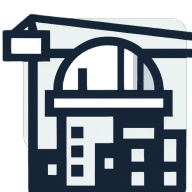14 Advice for Those New to the Construction Industry
In an industry where precision and expertise can make or break a project, what single piece of advice could set you on the path to success? Insights from a Director and a Founder & CEO outline the fundamentals for newcomers in the construction field. The article begins with the importance of developing strong contract management skills and concludes with the value of building strong communication skills. Get ready to uncover fourteen expert insights that can shape your career trajectory.
- Develop Strong Contract Management Skills
- Prioritize Building Strong Relationships
- Stay Open to Learning
- Adopt a Customer-First Approach
- Understand Local Zoning Laws
- Prioritize Safety Above All Else
- Cultivate Strong Team Communication
- Focus on Long-Term Client Relationships
- Document Every Project Detail
- Prioritize Thorough Planning
- Maintain Clear Client Communication
- Pick a Niche and Master It
- Embrace Continuous Learning
- Build Strong Communication Skills
Develop Strong Contract Management Skills
One piece of advice I would give to someone new to the construction industry is to develop a strong understanding of contract and commercial management early on. Contracts are the foundation of any construction project and set the guidelines for successful project delivery and completion.
It's crucial to understand the terms, deadlines, and conditions outlined in an agreement, as well as the mechanisms available to address potential deviations, such as variation orders, extension-of-time claims, and unexpected events like force majeure (e.g., floods, hurricanes).
When new professionals start their journey on construction sites and projects, they often underestimate the complexity of contracts and focus more on the technical aspects. However, having a thorough understanding of contracts provides several key advantages, including a profound grasp of risk management. Additionally, it ensures better financial control by helping you manage project cash flow, payment schedules, and penalties associated with potential delays.
Ultimately, a deep knowledge of your contract will lead to improved decision-making and smoother project delivery. Becoming skilled in these areas early in your career positions you as a more effective and well-rounded professional in the construction industry.

Prioritize Building Strong Relationships
In my 25 years in the landscaping industry, the best piece of advice I can offer is to always prioritize building strong relationships. This focus has been vital in navigating challenges and expanding our business. When we secured a large contract for the irrigation and landscape construction at William Hawrelak Park, it was largely due to the relationships we nurtured with key stakeholders over the years.
Early on, I learned the importance of understanding client needs deeply and collaborating closely with suppliers and partners. This approach helped us expand our service offerings, like holiday lighting and snow removal, allowing us to differentiate ourselves in a competitive market. One shouldn't underestimate the power of a well-maintained professional network.
Recently, acquiring HDK Floral was possible because of our long-standing relationship and mutual respect. Having these connections opened doors and facilitated smoother negotiations and integration processes. My advice is to invest time in understanding and supporting the goals of those you work with, creating genuine partnerships that can lead to more opportunities and resilience in challenging times.

Stay Open to Learning
Keep an open mind and be willing to learn from experienced professionals in the industry. This piece of advice has helped me tremendously when I first started out in the construction industry. Being new to any industry can be daunting, especially in a field as specialized as construction. There are many technical skills and knowledge that one needs to acquire in order to succeed. However, what sets apart those who excel in this field is their willingness to continuously learn and adapt.
When I first entered the construction industry, I was overwhelmed by the amount of information and terminology that I had no prior knowledge of. It was easy to feel intimidated and doubt my abilities. However, with an open mind and eagerness to learn from experienced professionals, I was able to overcome these challenges.
By learning from others' experiences and expertise, I was able to gain valuable insights and knowledge that would have taken me years to acquire on my own. Not only did this help me improve my technical skills, but it also allowed me to build relationships with industry experts who became mentors and resources for me throughout my career.

Adopt a Customer-First Approach
One piece of advice I'd offer to someone new in the construction industry is to accept a customer-first approach combined with solid planning. Early in my career with Vantage Builders, prioritizing client needs while keeping projects organized ensured not just completion, but satisfaction. For example, when remodeling a renowned golf-training facility in Utah, we engaged closely with the clients to tailor every aspect, meeting tight schedules without sacrificing quality.
A specific challenge this mindset helped me overcome was managing unexpected changes in material costs and labor shortages. Rather than getting derailed by these issues, our commitment to customer satisfaction drove us to negotiate with suppliers effectively, reducing job costs by 12% even amidst industry highs in 2022.
Moreover, each project—be it a commercial tenant improvement or a custom home—presented unique challenges, yet staying organized and customer-focused allowed us to deliver exceptional spaces consistently, resulting in a consistent 5-star Google rating. Embracing these practices not only brings efficiency but also fosters strong client relationships, critical to success in the construction world.
Understand Local Zoning Laws
When I first transitioned into the construction industry, one invaluable piece of advice that transformed my approach was to deeply understand local zoning laws and regulations. This helped me steer through the complexities of building projects, like ADUs, in compliance with local codes in Washington and Oregon. Ignorance of these rules can lead to costly delays or project cancellations, which I learned early on when a project faced unexpected zoning problems that nearly derailed it—thankfully, I was prepared.
In building ADUs, focusing on regulatory details allowed me to avoid such pitfalls. Once, for a project in Portland, I ensured all permits aligned with local zoning requirements before beginning any on-site work. This not only streamlined construction but also built trust with clients as they saw our proactive approach to potential legal challenges. Diving into this area might seem tedious at first, but it's saved me time, money, and stress and helped cement our reputation for reliability at RG ProBuilders.
For someone new to the industry, my advice is to make understanding regulations your starting point. This knowledge becomes your backbone in managing both logistics and client expectations. It's not just about adhering to rules but actively using them to guide your projects efficiently to completion, enhancing both your client relationships and your business reputation.

Prioritize Safety Above All Else
I've seen many newcomers join the construction industry, and if I had one piece of advice for them, it would be to prioritize safety above all else. When I began my career, I was more concerned with meeting tight deadlines and staying within budget rather than focusing on safety. However, after witnessing several accidents and near misses on construction sites, I realized the critical importance of making safety a top priority.
For starters, by prioritizing safety, I was able to create a safer work environment for myself and my team. This resulted in fewer injuries and accidents, which, in turn, helped us stay on schedule and within budget. It may seem counterintuitive, but investing time and resources into safety measures actually saves time and money in the long run.
Apart from tangible benefits, prioritizing safety also helps build trust with clients and stakeholders. It's important for me to maintain a good reputation and credibility in the industry. By consistently demonstrating a commitment to safety, I have been able to build strong relationships with clients who value responsible construction practices.

Cultivate Strong Team Communication
As someone who transitioned from network engineering to construction management, one key piece of advice I wish I had known earlier is the importance of cultivating strong team communication and leadership. When I became a construction manager, leading diverse teams effectively was crucial for project success. For example, on a large-scale project, clear communication not only kept timelines on track but also ensured that quality standards were met.
I leveraged my skills in IT integration to implement technology that improved our team's communication, such as project-management software that provided real-time updates and collaboration tools. This allowed us to quickly address any issues and facilitated seamless coordination between all parties involved.
Understanding the dynamics of team management helped me overcome challenges related to resource allocation and conflict resolution. Fostering a culture of open dialogue and feedback within the team was pivotal in maintaining morale and productivity, which in turn led to the successful completion of projects on time and within budget. Stay adaptable and open to learning new skills. Early on, I transitioned from a network engineer to a construction manager, which taught me the importance of versatility. One challenge I faced was leading a large project with tight deadlines, where my ability to troubleshoot and adapt helped keep everything on track.
Pay attention to technological integration in construction. During my tenure as a construction manager, I leveraged my IT background to implement project-management software, cutting down time spent on scheduling by 30%. This knowledge helped me overcome inefficiencies and showcase the value of technology in streamlining processes.
When I started my roofing company, Herts Roofing & Construction, I realized innovation is key. We adopted new installation techniques and materials that improved durability and customer satisfaction. By staying informed about industry advancements, you can meet challenges with cutting-edge solutions that improve project outcomes and reputation.

Focus on Long-Term Client Relationships
One piece of advice I would give to someone new to the construction industry is to focus on building long-term relationships with your clients. Early in my career, I realized that maintaining trust and communication with clients not only leads to repeat business but also generates referrals. A specific example would be a project we did on a historic church where the client was so impressed with our careful handling of their roof replacement that they recommended us to several other local businesses.
Understanding your clients' needs and exceeding their expectations is crucial. For instance, for a client needing a metal roof for their estate, I made it a point to discuss the specific advantages and design aspects of metal roofing. This custom approach improved the aesthetic and functional outcome, solidifying our reputation for personalized service.
Finally, never underestimate the power of gaining hands-on experience. When I started, I learned every aspect of roofing techniques by doing. Whether it's navigating the nuances of asphalt-shingle installation or perfecting seamless gutter systems, hands-on experience makes you adaptable and knowledgeable in practical situations, providing a solid foundation to tackle any challenge.
Document Every Project Detail
A unique piece of advice I'd give to someone new in construction is to document every single project detail from the very start, no matter how minor it may seem. This isn't just about having records for later—it's about understanding and tracking the flow of a project in real-time. When I was starting out, keeping thorough, daily notes on everything from material usage to weather conditions to crew schedules helped me anticipate and solve issues more quickly. It might sound tedious, but those notes became invaluable in identifying patterns and preventing small problems from becoming big setbacks.
This practice helped me overcome the challenge of managing unexpected project delays, which are all too common in construction. When you have a record of previous project issues and solutions, you can spot potential red flags early on and take preventive action. For instance, if certain materials consistently took longer to arrive during a specific season, I'd adjust future project timelines accordingly. This habit of detailed documentation allowed me to fine-tune my planning, improve accuracy in future bids, and ultimately deliver projects more smoothly and reliably, setting me apart in a field where surprises can make or break a job.

Prioritize Thorough Planning
One key piece of advice for someone new to the construction industry is to prioritize thorough planning before diving into any project. Early on, I learned the hard way that inadequate planning can lead to budget overruns and missed deadlines. Now, my team and I at New England Home Pros start every project with meticulous planning sessions to align client goals, set a realistic budget, and establish a manageable timeline.
I also faced challenges with understanding the importance of compliance, especially when it came to permits. Securing the proper permits upfront saves you from fines and project delays. For example, during a bathroom remodel in Londonderry, a client overlooked a plumbing permit, leading to unnecessary delays and costs. This experience taught me the value of tackling permit bureaucracy head-on to keep projects humming smoothly.
Lastly, balancing between DIY and professional expertise can be tough, but knowing when to bring in a professional can make or break a project. In my early days, I tried handling everything—ending up stretched thin and sacrificing quality. Nowadays, I focus on leveraging my team's specialized skills for tasks like custom carpentry and electrical work, ensuring exceptional results and allowing our clients' visions to come to life seamlessly.
Maintain Clear Client Communication
One crucial piece of advice is to always maintain clear and consistent communication with clients and subcontractors. Early in my career, I underestimated the importance of this, and it led to misunderstandings and unexpected challenges. At BLDG Custom Homes, we ensure that every conversation and decision is documented and shared, which keeps everyone on the same page and aligns expectations.
A specific challenge I faced was coordinating complex projects with clients who weren't local. In these situations, relying on robust communication systems—like regular video updates and a shared project management platform—was a game-changer. It allowed clients to feel involved and assured throughout the entire process, leading to smoother collaborations and timely completion.
Another important tip is understanding the lay of the land when selecting a property. In Bend, Oregon, geographical features can significantly impact construction logistics and costs. By involving our team early in the land selection process, we provide clients with insights on potential challenges like grading issues, which saves headaches down the line and ensures their dream home is both beautiful and feasible.
When I started in the custom-home-building industry, the best piece of advice I received was to focus intently on being organized. This approach saved me countless headaches. I made sure to keep detailed records of everything—from receipts to conversations with contractors. Having a dedicated system helped resolve disputes quickly and kept projects on track.
One specific challenge this approach helped me overcome was managing complex timelines. By maintaining a set calendar specifically for project milestones and due dates, I prevented delays and ensured that key phases were executed on time. This organizational habit also allowed me to communicate clearly and effectively with my team and clients, building trust and ensuring a smoother process.
Implementing a structured way to monitor discussions with subcontractors and banks was crucial. In one case, keeping track of all conversations helped steer a potential payment hitch, saving both time and tensions. This organized way of working has been instrumental in consistently delivering high-quality, custom homes on budget and on time.

Pick a Niche and Master It
One piece of advice I'd give to someone new to the construction industry is to pick a niche and focus on mastering it. It's not about choosing "the" perfect thing; it's about choosing one thing and striving to become perfect at it.
In such a broad and competitive field, it can be tempting to try to offer a wide range of services to capture more business. But the reality is, you'll become a go-to resource much faster if you focus on a specific area and master it. Specializing allows you to build deep expertise, streamline your processes, and truly stand out in your niche.
For example, at SnapADU, we didn't just decide to build accessory dwelling units (ADUs) in San Diego. We focus specifically on detached, new-construction ADUs that are design-build and constructed on-site. This level of specialization has allowed us to become highly skilled in navigating the complex regulations for ADUs, perfect our construction processes, and build a reputation for delivering exceptional results. As a result, we've grown rapidly and now handle 40+ ADU projects a year and $15M in annual revenue.
When we first started, there was a temptation to take on more types of projects—renovations, garage conversions, or even larger multifamily developments. But narrowing down to a clear specialty has helped us avoid spreading ourselves too thin and allowed us to become truly excellent in our niche.
This approach helped us overcome many challenges, especially when it came to efficiency and client trust. We were able to refine our workflows and solve recurring problems more effectively, rather than constantly reinventing the wheel for every new type of project. Clients also began to seek us out specifically for our expertise in this niche, trusting that we knew exactly how to deliver the high-quality, streamlined experience they were looking for.
By niching down, we've been able to become a thought leader in the ADU space. Publishing detailed construction guides and best practices has helped us build credibility and establish SnapADU as an authoritative resource. This focus has also made organic search our main source of lead generation.
Embracing the Joy of Missing Out (JOMO) has been key. By saying "no" to the wrong opportunities, we've been able to say "yes" to becoming the best in our niche, and that's where true success lies.

Embrace Continuous Learning
There is so much knowledge and insight unique to the construction profession. To set yourself up for a good experience, learn as much as possible, ask questions, and know that you will likely always be learning something new. Construction is not for the faint-of-heart, and to effectively project-manage requires an ability to face and break down the complexity for all parties involved.

Build Strong Communication Skills
Personally, aside from learning the necessary professional skills and knowledge, I would say that focusing on building strong communication skills is the most important thing for newcomers in the industry. Effective communication is key to ensuring that projects run smoothly, whether you're coordinating with sub-contractors, clients, or suppliers. Early on in my career, I faced challenges with miscommunication which led to work going in the wrong direction, and I had to put in extra effort to fix the mistakes. In the worst case, my senior co-worker had to re-do the work to cover for me.
One experience that I remember the most is when I was responsible for installing light fixtures in a commercial building. I misunderstood the specifications for where the fixtures should be placed and the type of wiring required. Instead of confirming the exact locations and wiring plan with the electrical engineer, I assumed I knew what was needed based on previous projects. This led to the light fixtures being installed in the wrong positions, and we had to re-do the entire section of wiring. If I had asked more detailed questions about the placement and wiring requirements, I could have avoided the mistake entirely.





